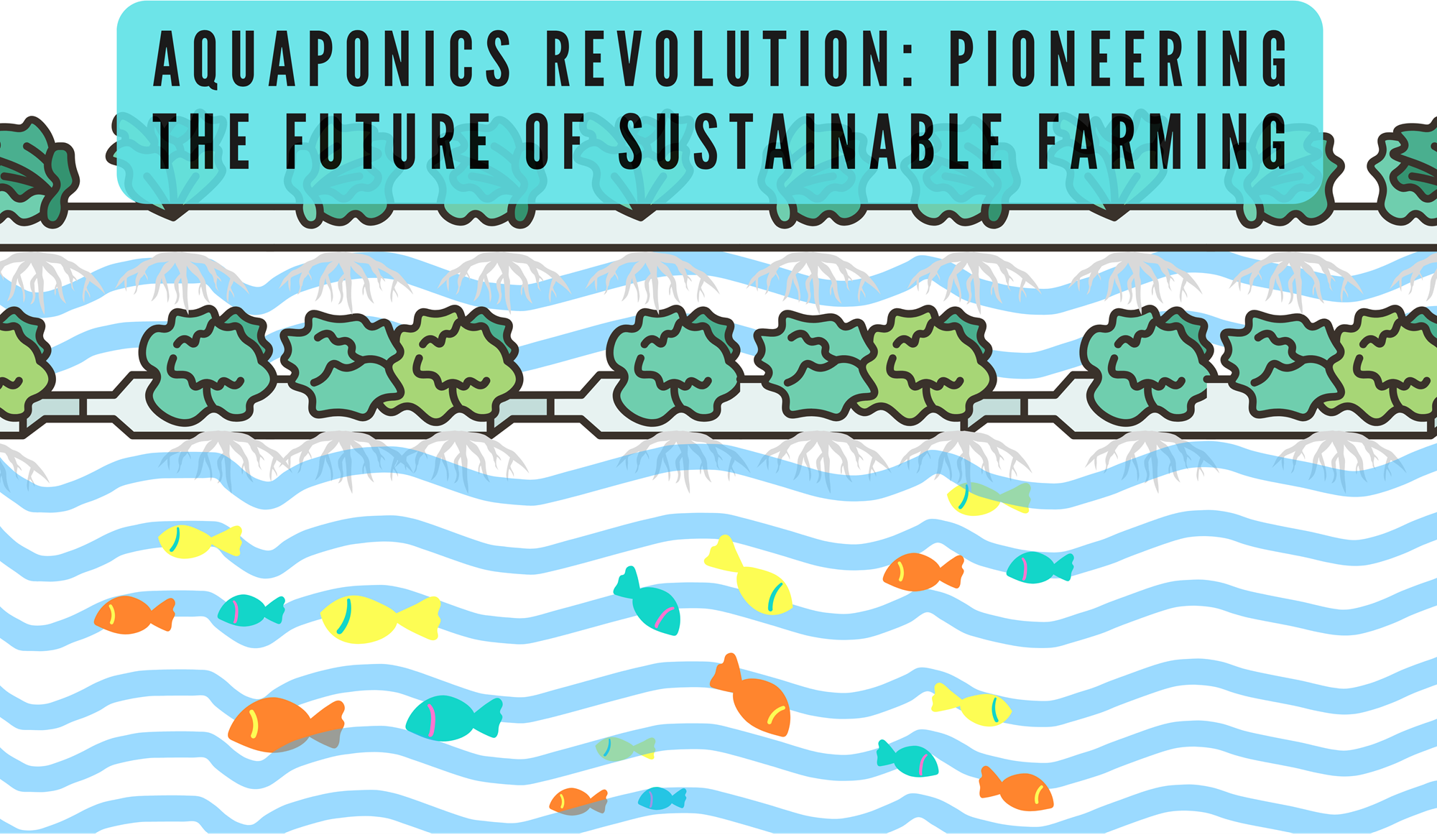
Aquaponics Revolution: Pioneering the Future of Sustainable Farming
Benefits of Aquaponics
Aquaponics: The Green Revolution 2.0
Aquaponics, often hailed as the Green Revolution 2.0, is a sustainable farming method that combines aquaculture (fish farming) with hydroponics (soilless plant cultivation). The benefits of Aquaponics are vast and impactful. This innovative system operates on a symbiotic relationship – fish waste provides an organic nutrient source for plants, and the plants, in turn, filter and purify the water, creating a closed-loop ecosystem.
Firstly, it drastically reduces water usage, a critical factor in regions struggling with drought or water scarcity. Secondly, it eliminates the need for synthetic fertilizers or pesticides, making it an eco-friendly alternative. Furthermore, it allows for year-round cultivation in controlled environments, increasing food production efficiency.
Additionally, this method yields both fish and a variety of crops, providing a diverse and sustainable food source. By revolutionizing conventional agriculture, aquaponics holds the promise of a greener, more efficient future in farming, while also presenting opportunities to integrate livestock farming into the eco-friendly ecosystem.
The Symbiotic Relationship: Fish and Plants in Aquaponics
Aquaponics presents a revolutionary approach to farming, offering a multitude of ecological and economic benefits. This innovative system creates a harmonious synergy between aquaculture and hydroponics, providing a means of integrated farming that produces both fish and crops. One of the most significant benefits of Aquaponics is its exceptional efficiency in resource utilization.
It drastically reduces water consumption compared to traditional farming methods, making it particularly advantageous in regions prone to water scarcity. Furthermore, the closed-loop ecosystem minimizes the need for synthetic fertilizers and pesticides, resulting in healthier and more natural produce.
Additionally, aquaponics systems can be implemented in various settings, including urban environments, promoting local food production and reducing transportation emissions. By maximising yield while minimising environmental impact, Aquaponics stands as a beacon of sustainable agriculture for the future.
Efficiency and Sustainability: Benefits of Aquaponic Farming
The benefits of Aquaponics in terms of efficiency and sustainability are nothing short of extraordinary. This innovative farming technique leverages a closed-loop system, where fish waste provides vital nutrients for plants, and in return, the plants filter and purify the water for the fish.
This symbiotic relationship maximizes resource utilization. Compared to traditional farming, aquaponics requires significantly less water, making it a highly efficient method, especially in regions prone to drought. Moreover, it eliminates the need for synthetic fertilizers or pesticides, reducing environmental impact.
The controlled environment of aquaponics systems allows for year-round cultivation, ensuring a constant supply of fresh produce. Beyond its resource efficiency, aquaponics holds potential in urban settings, revolutionizing local food systems and reducing transportation emissions. In essence, the efficiency and sustainability inherent in aquaponic farming mark it as a beacon of hope for the future of agriculture.
Challenges and Considerations in Implementing Aquaponics
While the benefits of Aquaponics are substantial, it’s important to consider the challenges that come with its implementation. One key consideration is the initial setup cost. Constructing a functional aquaponics system requires an investment in equipment, infrastructure, and technology.
Additionally, ensuring the proper balance between fish and plant populations is crucial for a successful system. Overstocking fish can lead to nutrient overload, while an insufficient fish population may not provide enough nutrients for the plants. Maintaining water quality is another critical aspect.
Monitoring pH levels, ammonia, nitrite, and nitrate concentrations is imperative to ensure a healthy environment for both fish and plants. Furthermore, adequate knowledge and expertise are necessary for troubleshooting any potential issues that may arise.
While there are challenges, with proper planning, education, and hands-on experience, aquaponics can be a highly rewarding and sustainable method of farming, contributing to a more resilient and eco-friendly food production system.
Aquaponics in Urban Agriculture: Revolutionizing Local Food Systems
The benefits of Aquaponics shine particularly bright in urban agriculture, where space and resources can be limited. This innovative farming technique presents a game-changing solution. By integrating fish farming with plant cultivation in a closed-loop system, aquaponics maximizes efficiency.
Urban areas, often plagued by space constraints, can utilize vertical farming techniques to make the most of available space. This not only increases crop yield but also promotes local food production, reducing the need for long-distance transportation.
Moreover, aquaponics systems require significantly less water compared to traditional soil-based farming, making it an eco-friendly alternative. As urban populations continue to grow, the potential of aquaponics in revolutionizing local food systems is immense.
It empowers communities to take charge of their food supply, fostering sustainability, self-sufficiency, and a healthier, fresher food supply chain.
The Road Ahead: Potential Developments and Benefits of Aquaponics
The benefits of Aquaponics are poised to shape the future of agriculture significantly. This sustainable farming technique not only maximizes resource efficiency but also holds the potential to revolutionize urban agriculture.
With the integration of fish farming and plant cultivation in a closed-loop system, aquaponics offers a solution to the space constraints often faced in urban areas. The vertical farming possibilities enable cities to produce fresh, local produce, reducing the environmental impact of long-distance food transportation.
To conclude
With technological advancements, we anticipate even more efficient and automated aquaponics systems, further enhancing its viability. As research refines fish and plant varieties for optimal symbiosis, aquaponics has the capacity to provide a diverse range of produce at higher yields. These developments mark a promising future for agriculture, highlighting aquaponics as a sustainable and impactful method of food production.